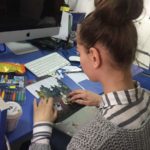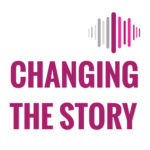‘Consolidating Learning in South Eastern Europe’ (Co-LearnSEE)
 Co-LearnSEE is a comparative, evaluative and participatory research project investigating the learning from four CtS participatory-arts projects in the SEE region. The project is conceptualised in four overlapping stages:
Co-LearnSEE is a comparative, evaluative and participatory research project investigating the learning from four CtS participatory-arts projects in the SEE region. The project is conceptualised in four overlapping stages:
(1) mapping; (2) comparative analysis; (3) participatory action research (PAR); (4) dissemination activities.
The project is being implemented by the PDRA under guidance of the PI, Co-I and an Advisory Board including all CtS-SEE project PI-s and Co-Is (ACT; IZAZOV!; The Making of the Museum of Education; and ReSpace ).
Activities 1-4 inform the critical review of all CtS - SEE projects’ learning to date, guided by an ethos of horizontal co-learning and engaged pedagogy. The focus on correlations and contingencies of respective (a) contexts; (b) designs and practices; and (c) participants’ experiences vis-a-vis outcomes allows us to identify differences and similarities and how these, respectively, shaped rationales, conceptualisations, choices and outcomes. These are being captured through mixed, qualitative evaluation methods including desk research, in-depth interviews and PAR, as well as co-creative reflection exercises.
Co-LearnSEE’s overall aim is to provide a better, contextual and differentiated understanding transferability and which factors effectively facilitate change towards:
1) Formal or non-formal educational institutions and CSOs adopting innovative, arts-based, socially inclusive and participatory methods research-based pedagogies aimed at critical thinking;
2) Young people and formal CSOs or informal groups identifying new ways of making their voice heard and effectively challenging established partisan historiographic or neo-colonialist narratives.
Latest developments about the project
The PDRA has been comparing and contrasting the case studies to distinguish specific and transferable learning. Epistemologically, she has been guided by grounded theory, so that the relevance of distinct concepts (e.g. ‘participatory approaches’, ‘youth activism’ etc.), opportunities and problems, drivers and spoilers of each project’s development can be identified, facilitating the participants’ continuous learning.
Semi-structured, in-depth interviews have been conducted with former participants, but also mentors, trainers, partners and experts involved directly or indirectly in the respective projects. All interviews have been conducted online due to travel restrictions related to the COVID-19 pandemic.
Despite not being able to travel and meet each other, young people who have been part of the respective local projects are planning together with the PDRA dissemination activities. In this framework, a series of podcasts/online webinars and blogs is bound to be launched soon. The topics, which have been selected by the participants and which will be entirely planned and implemented by young people, involve subjects relative to the projects, but examined through a youth-friendly perspective, adjusted to our digitalized realities. The podcasts, recorded in the form of interactive webinars, will be livestreamed, open and free to anyone interested. 
Resource Archive
Search or browse the resource archive for films, reports, toolkits and other resources produced by the Changing the Story and its commissioned projects.
